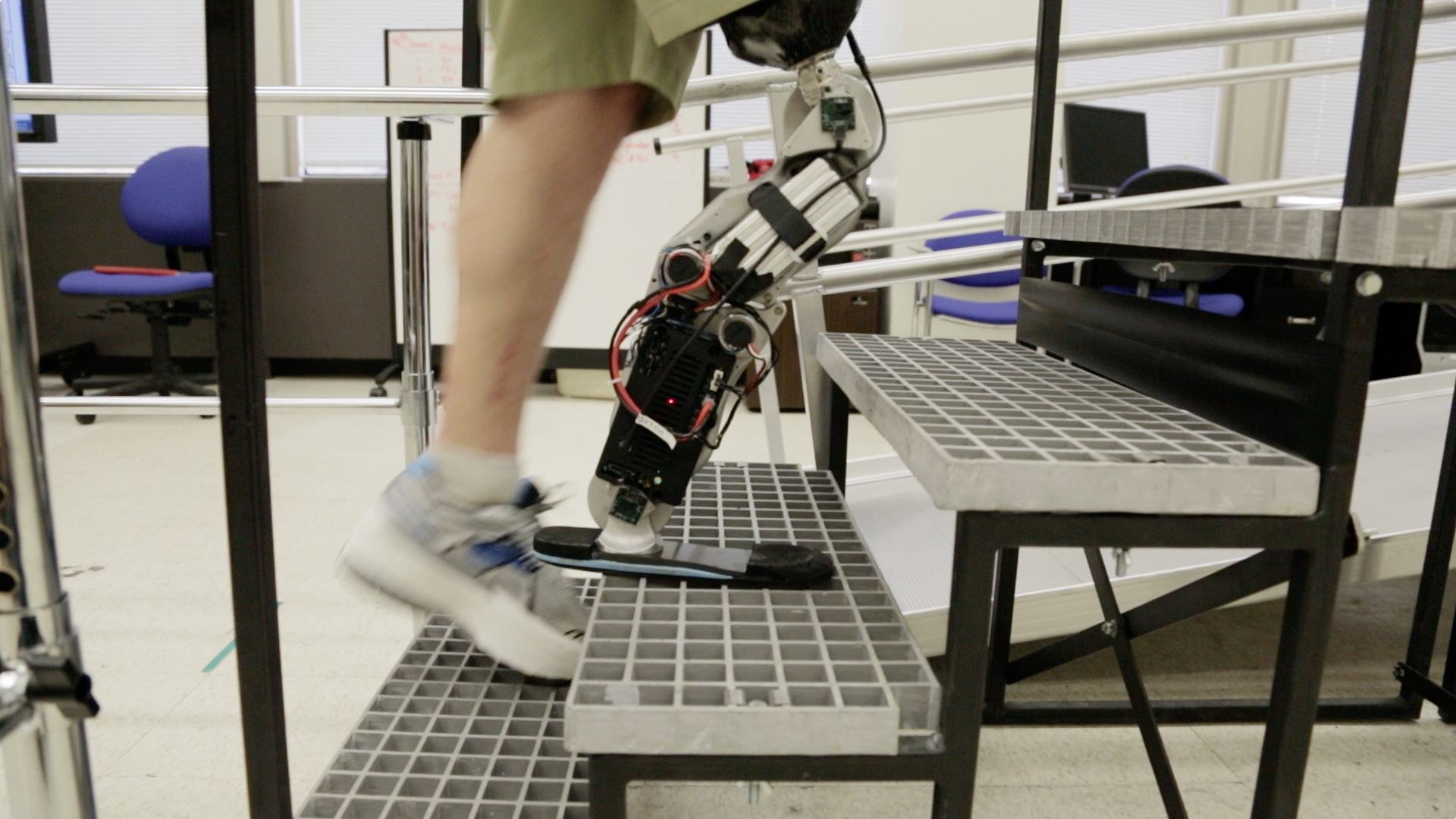Has Bionic Leg, Will Take the Stairs
If you live or work on the 103rd floor of a building, chances are you ride the elevator up to your pad.

Not Zac Vawter—not, at least, on Sunday. Yesterday, the 31-year-old amputee wore a prototype prosthetic and successfully climbed 103 stories up the Willis Tower in Chicago, scaling 2,109 steps to a height of 1,353 feet.
Vawter’s climb was the first public showing of a new kind of prototype prosthetic that is controlled, in part, by electrical impulses traveling from his brain. Vawter took 45 minutes to finish the climb, the AP reports. His goal had been one hour, the Chicago Tribune reported a few days earlier.
The ten-pound artificial leg is being developed by a team led by Levi Hargrove from at the Center for Bionic medicine at the Rehabilitation Institute of Chicago.
Nerves from Vawter’s amputated leg were re-attached to his hamstring in an early operation. It’s those nerves that controlled the mechanical bits on his leg. “Targeted muscle reinnervation,” a technique Hargrove has described as “rewiring the patient,” is what allows the prosthetic to function as it does. Electrodes on Vawter’s thigh translate the neuron signals to electrical instructions that move the leg.
The Skyrise Chicago event at the 110-story Willis Tower is organized by the Rehabilitation Institute. The funds participants raise each year are directed toward research and training at the Institute.
For Vawter, the stairmaster prosthetic is a temporary accessory. He’ll leave it behind in Chicago for further development when he returns home to Yelm, Washington, but the leg’s builders hope for a wider release in the near future.
Keep Reading
Most Popular
How scientists traced a mysterious covid case back to six toilets
When wastewater surveillance turns into a hunt for a single infected individual, the ethics get tricky.
The problem with plug-in hybrids? Their drivers.
Plug-in hybrids are often sold as a transition to EVs, but new data from Europe shows we’re still underestimating the emissions they produce.
What’s next for generative video
OpenAI's Sora has raised the bar for AI moviemaking. Here are four things to bear in mind as we wrap our heads around what's coming.
Stay connected
Get the latest updates from
MIT Technology Review
Discover special offers, top stories, upcoming events, and more.